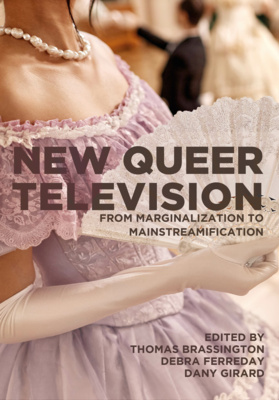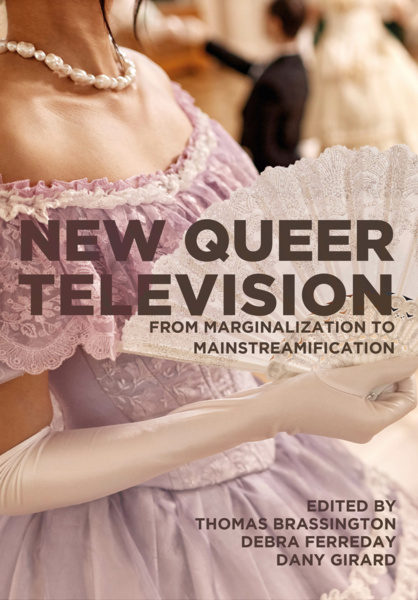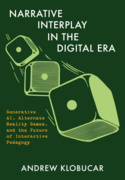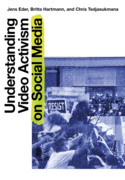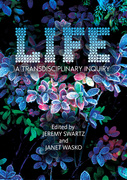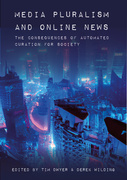New Queer Television (Book)
From Marginalization to Mainstreamification
This edited volume draws attention to a dynamic field in which a wide variety of queer identities can be put on display and consumed by audiences rather than framed as marginal. Cementing a foundational understanding of queerness that is at odds with current shifts in media production, contributors present a broad variety of queer identities
Edition
Though queer critics and queer theory tend to frame queer identities as marginal, this edited volume draws attention to a dynamic field in which a wide variety of queer identities can be put on display and consumed by audiences. Cementing a foundational understanding of queerness that is at odds with current shifts in media production, contributors present a broad variety of queer identities from across a range of televisual shows and genres to reconsider the marginalization of queerness in the twenty-first century. Doing so challenges preexisting notions that such “mainstreamification” necessitates being subsumed by the cisheteropatriarchy. This project argues the opposite, showing that heteronormative assumptions are outdated and that new queer representations lay the groundwork for filling gaps that queer criticism has left open.
Thomas Brassington is a researcher whose work explores intersections of queerness and the Gothic in contemporary popular culture. Debra Ferreday is a feminist cultural theorist whose research concerns gender, feminist theory, sexuality, critical race theory, queer theory, and embodiment. Dany Girard is a queer researcher whose work primarily explores representations of gender, asexualities, and queer theory in television and film.
Dr Thomas Brassington received his PhD from Lancaster University, UK. His project, Dragging the Gothic, explores the phenomena of cross-dressing in the Gothic mode through the lens of drag performance. His research interests are in contemporary Gothic, femininities, popular culture and queer Gothic more broadly.
Dr Debra Ferreday is a feminist cultural theorist with strong research interests in gender, feminist theory, sexuality, critical race theory, queer theory and embodiment. Her research engages with embodied and social aspects of new media and digital cultures, celebrity culture, media and violence, fan studies, sexuality studies and mad studies.
Dr Dany Girard received their PhD from Lancaster University, UK. They currently work as a Senior Teaching Associate in Media and Cultural Studies at Lancaster University. Their thesis mapped the evolution of paratextual queer fiction (slash fan fiction) being produced in conjunction to the original series of Star Trek. They are currently
working on both an edited collection and special issue on new queer television. Their research interests revolve around queerbaiting, queer(ed) and trans bodies in horror TV and film, disordered eating and dysphoria, feminine expression and pop culture.
Acknowledgements
Introduction: The Evolving Landscape of Queer Television
Dany Girard, Thomas Brassington, Debra Ferreday
Part I: Dramatic Realities
1. Love, Victor and the Utopian Function of Networking Queer Identity Work
Sam Hunter
2. Striking Poses of Possibility: Exploring the Transgressive Imaginations of the Series Pose and its Promotional Posters
Daphne Gershon
3. ‘Que soy marimacha’: Vida’s Queer Inheritance
Laura Stamm
Thought Pieces
‘You Cannot Put A Fire Out’: Revisiting Queer Female Histories in Dickinson
Sarah E. S. Sinwell
Pushing ‘LGBT-Friendliness’ into Japanese Television: A Case Study of My Brother’s Husband
Timo Thelen
Part II: Paratextual Politics
4. You Don’t Get Points for Paratext: The Precarity of Queer Representation in Good Omens
Alex Xanthoudakis and Tvine Donabedian
5. Soulmates and Brotherhood: Homosociality and Homosexuality in the Chinese Series, The Untamed
Roxanne Tan
6. Retrospective Queering: LGBTQ Representation in The Legend of Korra Television Series and Comics
Sarah Busch
Thought Pieces
For the Honor of Gayskull: Why Queer Love Saving the Universe in She-Ra and the Princesses of Power Matters
Colleen Etman
Part III: Generic Possibilities
7. Not Just A southern Pansy, Sergeant. the Southern Pansy: Good Omens’ Queer Representation
Dawn Stobbart
8. Granting Wishes: Representing Queerness in American Gods
Yaghma Kaby
9. ‘It’s called acting! That’s the real magic here’: She-Ra and the Princesses of Power’s Nonbinary Character Double Trouble as Lens for Intersection of Identity, Performativity and Acting
Harold Bosstick
10."Those are the worst jobs on the ship:" Star Trek: Lower Decks and the Radical Queer Utopia
Dany Girard
Thought Pieces
De-Fanged Queerness in Dracula Reimagined
Carey Millsap-Spears
Claws & Queer Fantasy: The Queer Power of Contemporary Television Narrative
Brecken Hunter Wellborn
Coda: Looking Forward to the Next Season of New Queer Television
Debra Ferreday, Dany Girard, Thomas Brassington

